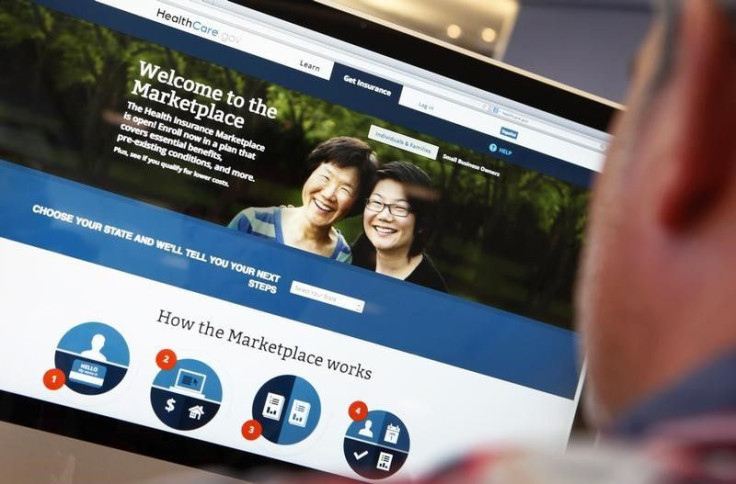Obamacare Tax Penalty 2015: Many Choosing Fines Over Enrollment In Affordable Care Act

Many U.S. taxpayers are taking a tax penalty instead of buying health insurance under the Affordable Care Act, the Wall Street Journal reported Saturday. The health care law requires most Americans to have insurance, or pay a fine to Uncle Sam during tax season.
But the tax penalties are growing. Americans who were uninsured in 2014 will face a fine of $95, or 1 percent of their income, this tax season. Then the fines will jump to 2 percent, or $325, in 2015.
Open enrollment originally ended Feb. 15, but a special enrollment period began last Sunday and is now extended through April. However, research indicates many people will still choose to pay the penalty instead of enrolling in health insurance, tax preparers said. "Our analysis indicates that a significant percentage of taxpayers whose household members were not covered for at least a portion of 2014 are opting" to pay the penalty, Mark Ciaramitaro, a vice president of health care enrollment services for H&R Block, told the Wall Street Journal.
A survey of 3,000 adults found only about 12 percent of those who are uninsured would buy policies if they learned about the penalty, a Feb. 24 poll from McKinsey & Co.'s Center for U.S. Health System Reform indicated.
Around 11.7 million people had signed up for health coverage under the Affordable Care Act as of Feb. 22, the U.S. Department of Health and Human Services announced earlier this month. Of the more than 8.8 million plan selections in HealthCare.gov, nearly 7.7 million individuals, or 87 percent, qualified for an average tax credit of $263 per month.
However, one taxpayer told the Journal he doesn’t plan on signing up for health insurance during the special enrollment period because it will be cheaper for him to pay out-of-pocket for health care. "I think it's wrong I have to pay the penalty," Gonzalez said. "But it beats paying more than $10,000 a year."
© Copyright IBTimes 2024. All rights reserved.






















